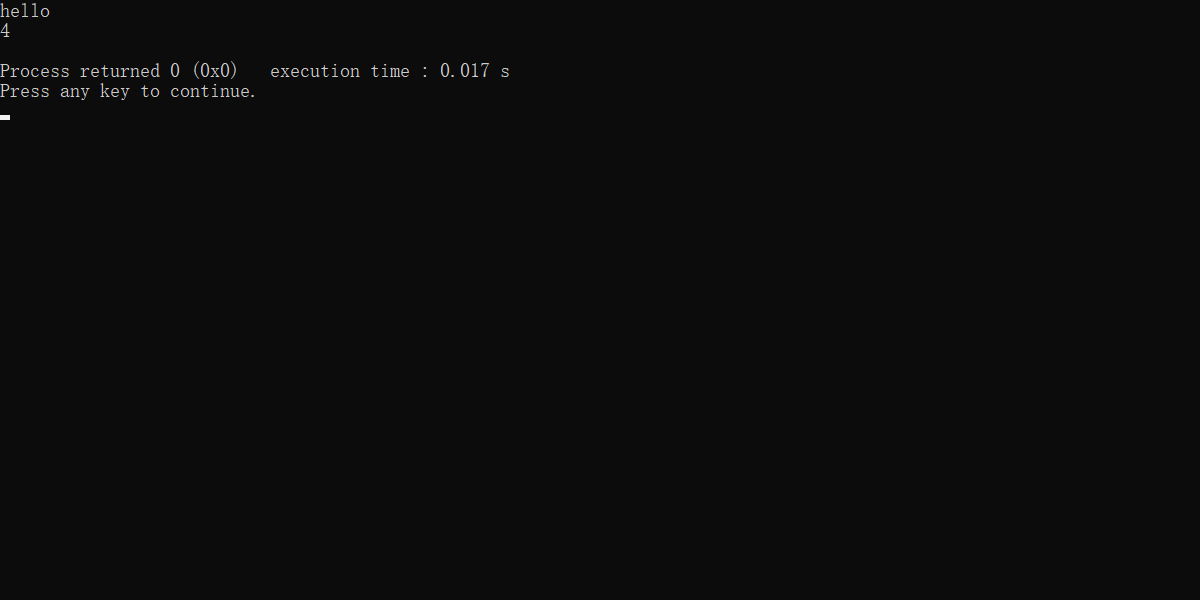你可能会很疑惑 为什么我要研究c/c++用函数返回一个数组
首先这个
其实c来返回一个数组等比较复杂的数据类型的变量是比较麻烦的。因为c系语言是强类型语言。而python是弱类型。比如python 直接定义 i = 1即可,c却要int i =1;python 的函数return 谁都可以
因为python对类型没有很强的约束。可是你 c就是写死了。
用c返回一个数组在嵌入式开发等环境中还经常会用到。比如串口写数据,写一大长串,就是字符,就是char数组,也就是char*
这些东西想好好写 那函数就得返回一些字符数组,甚至是结构体。。。
我以前没这么写过 我刚开始是类似这样写的:
#include <iostream> #include<typeinfo> #include<stdio.h> using namespace std; char *GetString(void) { char str[] = "hello"; return str; } int main() { printf("%s\n",GetString()); cout<<sizeof(GetString())<<endl; cout<<typeid( GetString() ).name()<<endl; //cout << "Hello world!" << endl; return 0; }
结果:
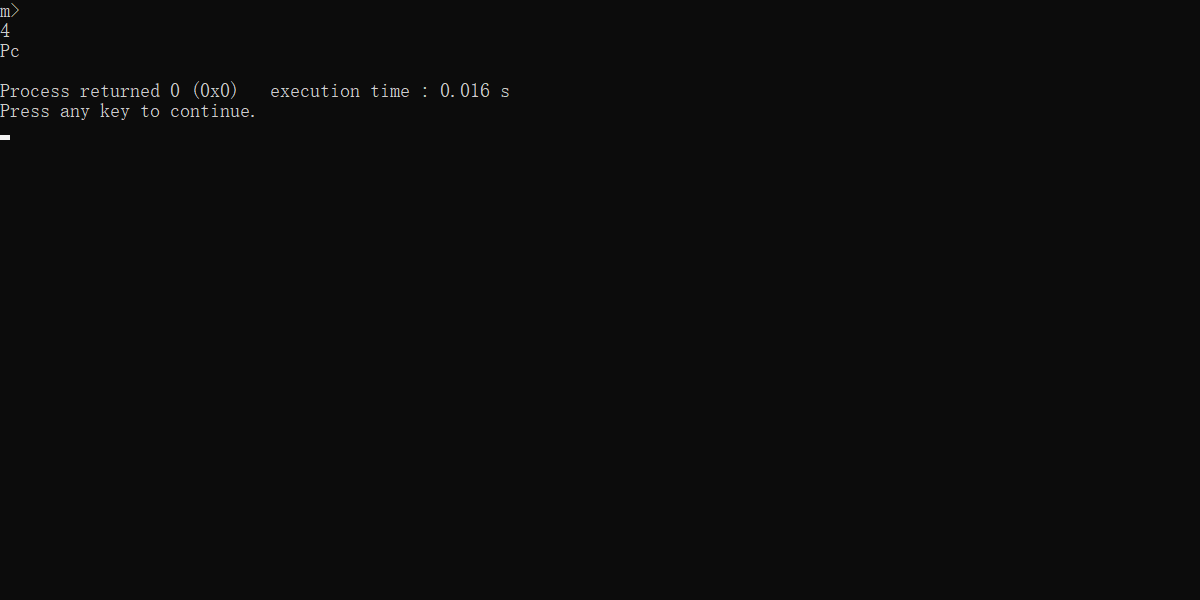
我靠 我hello呢???
我猜测是这样。因为我是局部变量定义的。这个函数运行完就释放内存了。所以hello本来就不应该有了。一个指针类型的局部变量,她返回的是局部变量的地址。可是局部变量用完就被释放了。
那怎么写。唉,首先,最简单的,用全局变量就行的啦。
#include <iostream> #include<typeinfo> #include<stdio.h> using namespace std; char str[] = "hello"; char *GetString(void) { str[0] = 's'; return str; } int main() { printf("%s\n",GetString()); cout<<sizeof(GetString())<<endl; cout<<typeid( GetString() ).name()<<endl; //cout << "Hello world!" << endl; return 0; }
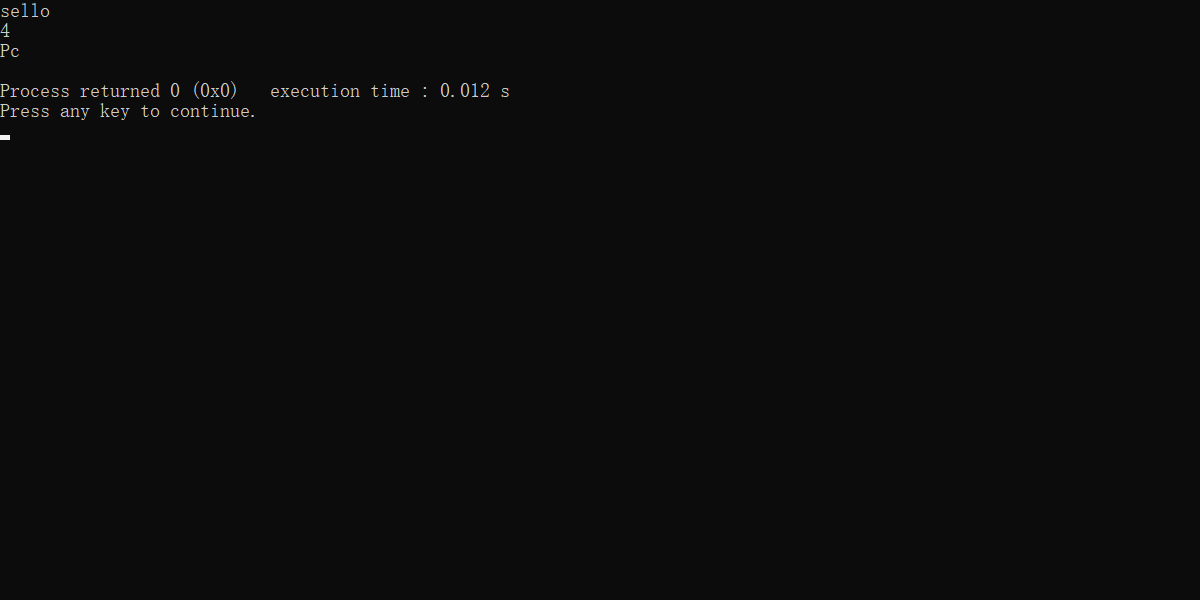
好。下面开始整活。
我用静态局部变量行不行?
#include <iostream> #include<typeinfo> #include<stdio.h> using namespace std; char *GetString(void) { static char str[] = "hello"; return str; } int main() { printf("%s\n",GetString()); cout<<sizeof(GetString())<<endl; cout<<typeid( GetString() ).name()<<endl; //cout << "Hello world!" << endl; return 0; }
结果:
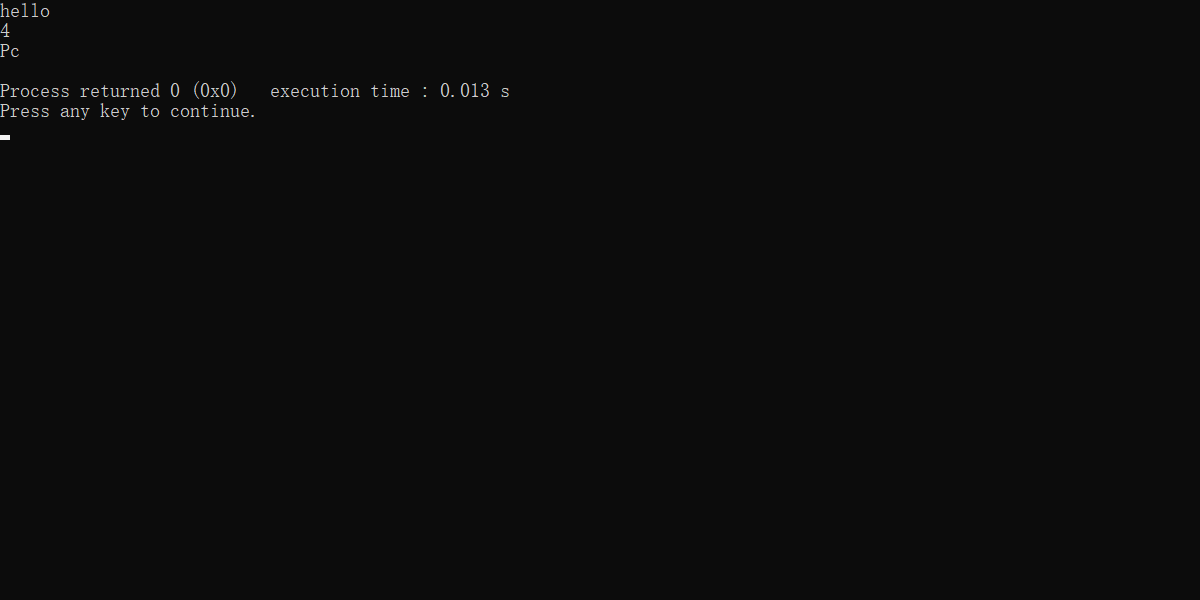
行啊,这不就方便多了吗。静态变量他会一直存在的。这就是对代码掌握熟了的好处了。有些全局变量你写了还真的不好找。可是你用静态变量写了函数里,它好找,这个代码可读性一下子就上去了。
还有。如果说我们动态分配内存呢?内存那可是实打实的。不去free他就一直有
#include <iostream> #include<typeinfo> #include<stdio.h> #include<stdlib.h> using namespace std; char *GetString(void) { char *str = (char*)malloc(sizeof("hello")); str = "hello"; return str; } int main() { printf("%s\n",GetString()); cout<<sizeof(GetString())<<endl; cout<<typeid( GetString() ).name()<<endl; //cout << "Hello world!" << endl; return 0; }
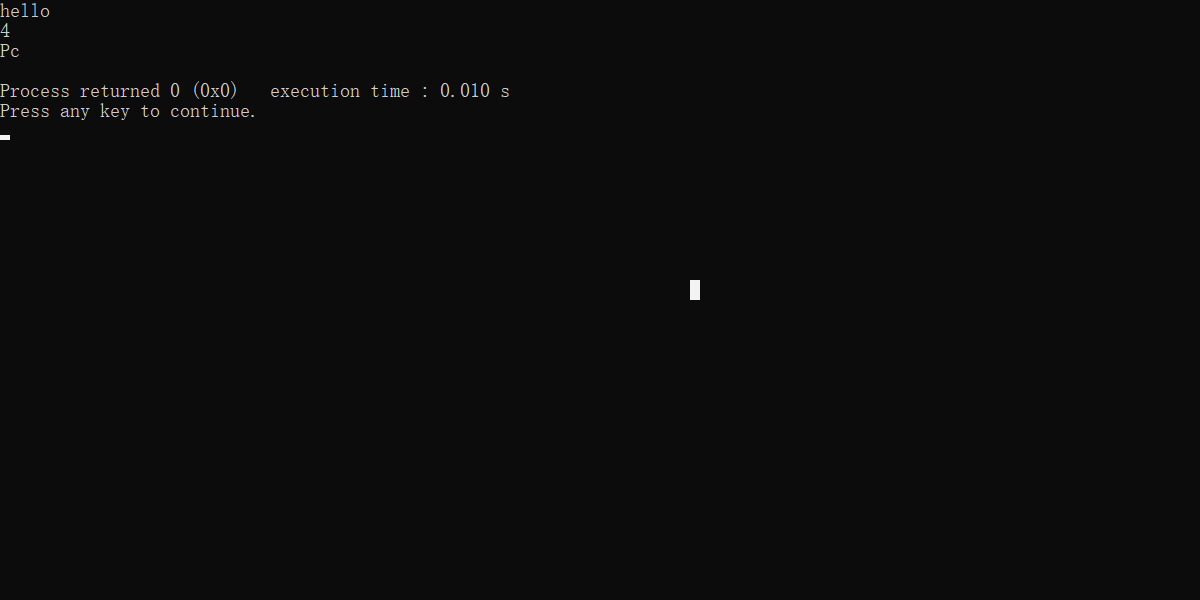
其实。最好用的是这种 就传参就行了
#include <iostream> #include<typeinfo> #include<stdio.h> #include<stdlib.h> using namespace std; char *GetString(char *str) { return str; } int main() { char* str2 = GetString("hello"); printf("%s\n",str2); cout<<sizeof(str2)<<endl; //cout << "Hello world!" << endl; return 0; }
